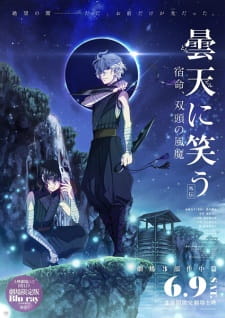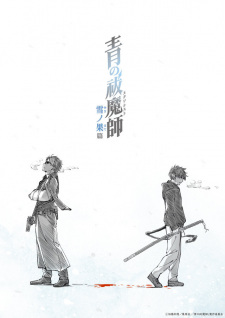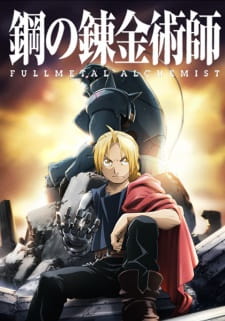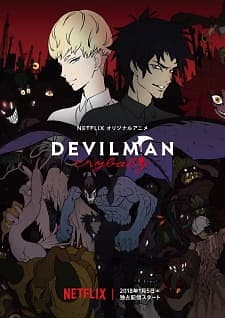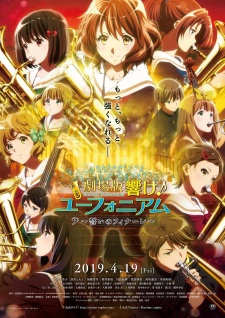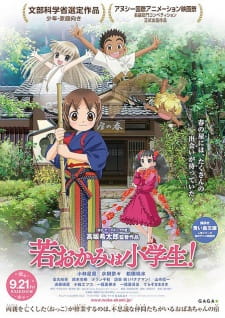May 26, 2020
I finished this movie last night, and I could not get it out of my mind. This film has more details than the manga presented, even showing us Eishirou (Shirasu's father) whose face we never see in the manga. I want to give a shout-out to everyone who worked on this film for breathing life to the story and characters!
Story: This film is completely in Shirasu's perspective, after he fell from the cliff. All Shirasu's warm memories with the Kumo brothers flash through his mind (including the ones that were not in the 12-episode TV anime), and he recalls his upbringing prior to meeting the
...
trio. This film is bittersweet, as we witness Shirasu lose his family twice: his Fuuma family and the Kumo family that adopted him for the past ten years. Like Shirasu expressed in the drama CD, happiness to him is having a place to go home to. I would recommend this film to folks, whether they love him or not, to understand him better. This movie gives a closer insight to Shirasu's feelings and really explains his devotion to the Fuuma clan, as well as why -as reasoned by his twin brother in both the manga and 12-episode TV anime- his plan failed.
Characters: I appreciate the diversity of the characters' emotions, including the supporting casts' feelings. We feel the grief they experienced after killing their kin, such as Nishiki's experience prior to fleeing the village. This film makes it clear that death not only impacts close relatives, but also dear friends - an entire community. I appreciate seeing that although the ninjas were treated as tools, they still had autonomy in their own way. I felt their frustration at the head of their clan, as well as their own turmoil at not wanting to kill their kin and feel grief after loved ones die. They felt helpless as the head of the clan refused to listen to their concerns.
-Isuke (Shirasu): I appreciate his persistence and honesty. He is someone who keeps to his word and he does his best for his loved ones. It's almost easy to forget that he was 14 at the oldest, because he was incredibly mature. He knew what to prioritize and he was someone who followed his intuition. He also didn't blame others, but rather, he chose to understand the circumstances. I felt sorry for him because of the numerous deaths he witnessed, which contributed to his responsibilities. It reinforced to me that the only time in his life, when he was able to live for himself -laugh wholeheartedly and live without fear- was when he was with the Kumo brothers. This then highlights how the love Shirasu had for the Kumo family, made it much harder for him to enact the plan to revive the Orochi.
-Isame (Kotarou): As the younger twin who grew up being hidden, I saw him as slightly sheltered. I had sympathy for him, as someone who wanted to develop his skills and become a full-fledged Fuuma in their village. However, it is unfortunate that due to the superstition of twins being a calamity, he lived his entire life in hiding. I wish circumstances were different for him to live freely and contently. Like the rest of the family, he was caring and considerate of their safety. Indeed, a good person but society worked against him.
-Rikka: I liked her honesty with her feelings. This side of her reminds me of Shirasu, as they're both very in touch with their emotions. As much as the two characters can be understanding of circumstances, they don't ever deny their feelings. I applaud her strength, not only physically, but her vulnerability as well. It's very easy for one to bottle up their emotions, so it was healthy for her to express how she was feeling in her own way, even if she couldn't be very explicit about it.
-Eishirou: He was courageous and capable. I admire his selflessness. It's clear that he was empathetic, as he pays attention to his surroundings. He was noble to me, as he acted and took risks without regrets. It's clear both of his children inherited his traits. He was also doting to his family, which is shown through his body language.
Art: This movie was produced by Wit Studio, while the 12-episode TV anime was produced by Doga Kobo. So, there was a different art style this time. I liked Wit Studio's art, but I preferred the art done by Doga Kobo. In this film, I felt that the bubbles could have been shiner. I do appreciate the eyes though! The emotions were clearly expressed through the eyes. And I did like the scenery, like how green the bushes were, which was a pleasant contrast to the dark rocks as the sun set.
Sound: With experienced voice actors on board, the sound was pleasant. The concern Rikka and Eishirou had for their children; the heavy breathing when characters ran; the anguish cry when a loved one passed away; Shirasu's desire to be with his biological family and his longing for his past with the Kumo brothers, are examples that come to my mind. The song that played during the ending credits was gentle, which gave me the space to gather my thoughts.
Enjoyment: I enjoyed this movie as questions were answered. We learn where the mask that Isame/Kotarou (Shirasu's twin) wore came from. We witness what Nishiki and her family lived through, which lets us see why she ran away from the village. We learn what happened to Shirasu following his departure from the Kumo brothers. Notably, we learn what were the circumstances that led Shirasu and Isame to be the co-heads of the clan.
Overall: I left this film feeling grateful to have watched it. But it was bittersweet to see how unfair life was to the characters. I'm glad that after the ending credits, there were moments of the next movie being shown. It gave me something to look forward to. - One word that comes to my mind right now is acceptance. To accept the past for what it is and to keep it in our hearts, while we continue living.
Reviewer’s Rating: 10
What did you think of this review?
Nice
 0
0
Love it
 0
0
Funny
 0
0
Confusing
 0
0
Well-written
 0
0
Creative
 0
0Show all
